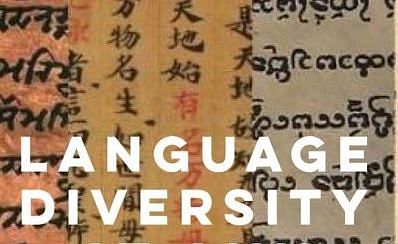
language
Former Prime Minister, Manmohan Singh expressed disappointment over Indians lagging behind in linguistic research despite the language diversity in the country.
He underlined that employment and business opportunities can open up if latent potential of India's linguistic diversity is tapped by linguistics and computational sciences.
He made the remarks during the release event of 11 volumes of the People’s Linguistic survey of India (PLSI).
The PLSI is a comprehensive survey of all living languages of India carried out by a large team comprising volunteers, field activists and experts under G N Devy, the chairman and chief editor of the mammoth study.
"Despite this amazing language diversity, Indians seem to have lagged behind in linguistic research and scholars know all about Saussure and Chomsky, but they are not able to use the theories of Panini and Bhartrihari, Anandvardhan and Abhinavagupt with equal ease," Singh said.
In the process, we have continued to imbibe and mime the colonial knowledge of languages and linguistics despite having such enormous wealth of theoretical resource in our own intellectual tradition, he said.
Singh said, "A high level of employment and business opportunities can open up for the trained man-power in these fields if the latent potential of Indian linguistic diversity is tapped by linguistics and computational Sciences."
Singh also emphasised on the "crucial importance" of research drawing upon the vast linguistic diversity
for making fresh break-through in the fields of knowledge and nurturing innovations in sciences and technology.
"This can be achieved through productive intellectual collaborations as the People's Linguistic Survey has done," he said.
"In absence of such close collaborative and interdisciplinary research in Indian universities, institutes of technology and medical-sciences centres, other global players will turn their attention to exploring, documenting and processing the diversity of indigenous and non-scheduled languages in India," he noted.
It may be most timely and appropriate to the global and the national situation to encourage innovative research practices and to work the new trends in languages based science and technology to India's economic advantage, as well as to become the world leader in the field of language conservation and language diversity, the ex-prime minister said.
The PLSI is being published in various state languages, Hindi and English as a series of 50 volumes, with a total of 92 titles.
The publication of the series began in 2013.
The PLSI is published by Orient Blackswan.
As of August 2017, 37 titles have been published covering Jammu and Kashmir, Himachal Pradesh, Punjab, Haryana, Rajasthan, Gujarat, Maharashtra, Karnataka, Tamil Nadu, Bihar, West Bengal, Assam, Meghalaya, Uttar Pradesh, Madhya Pradesh and Chhattisgarh among others.
The volumes for Goa and Sikkim will be released by the end of 2017.
All of the 92 titles of the PLSI will be available in print form and as e-books by December 2020.









